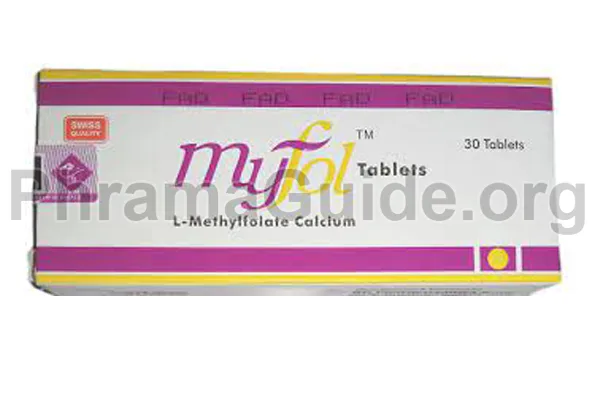Myfol is a prescription medication that is often used to treat certain medical conditions related to folate deficiency, such as some types of anemia or depression. It contains the bioactive form of folate (vitamin B9) that can be more readily absorbed by the body, and it plays a crucial role in various physiological processes. Like all medications, Myfol can have side effects, though they may not occur in everyone who takes it.
Common Side Effects
- Gastrointestinal upset: This can include nausea, vomiting, diarrhea, constipation, bloating, and gas.
- Altered sleep patterns: This can include insomnia, drowsiness, and vivid dreams.
- Changes in mood: This can include irritability, anxiety, and agitation.
- Headache
- Skin rash
Less Common Side Effects
- Allergic reactions: Some individuals may experience allergic reactions, which can include skin rashes, itching, hives, swelling, or difficulty breathing.
- Weight loss
- Increased heart rate
- Palpitations
- Confusion
- Impaired judgment
- Unusual tiredness or fatigue
- Decreased appetite
- Itching or tingling sensations
- Muscle weakness or cramps
- Difficulty concentrating

What is Myfol?
Myfol is one of the leading brands of L-Methylfolate Calcium, manufactured and marketed by RG Pharmaceuticals Pakistan.
Myfol : Available Formulations and Strengths
Presently, Myfol is available in Tablet Form
Myfol Tablets : 400mcg Strength
What Are The Possible Drug Interactions of Myfol?
- Antiepileptic Medications: Some antiepileptic drugs, such as phenytoin and valproic acid, can reduce folate levels in the body and may require additional folate supplementation. However, the interaction between these medications and Myfol can be complex, and the dosage may need to be adjusted under medical supervision.
- Methotrexate: Methotrexate is often used in the treatment of certain cancers and autoimmune conditions, and it can interfere with folate metabolism. When taken concurrently with Myfol, careful monitoring is necessary to ensure that the appropriate balance of folate is maintained.
- Sulfasalazine: This medication, used to treat inflammatory bowel disease, can affect folate absorption. Myfol supplementation may be recommended to mitigate potential folate deficiency.
- Antibiotics: Certain antibiotics, such as trimethoprim and sulfamethoxazole (found in drugs like Bactrim), may interfere with folate metabolism. Myfol supplementation can be considered in individuals on long-term antibiotic therapy.
- Other Medications: Some medications that affect folate absorption or metabolism may include triamterene, pyrimethamine, and various antiretroviral medications.

Leave A Comment